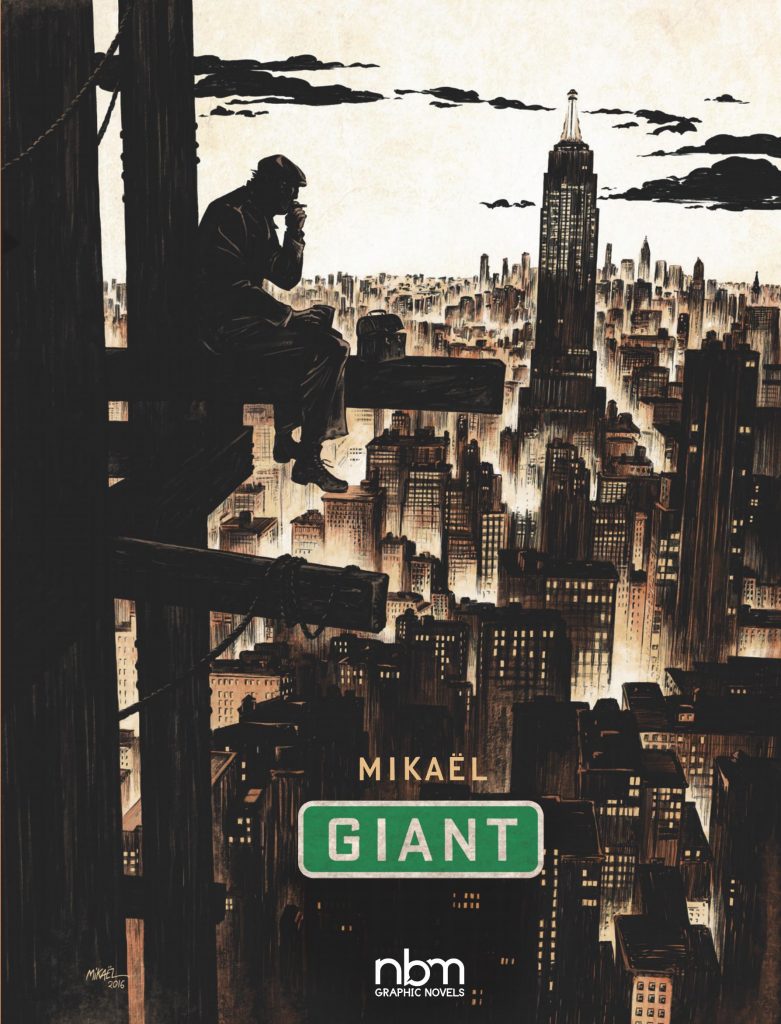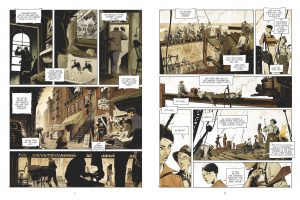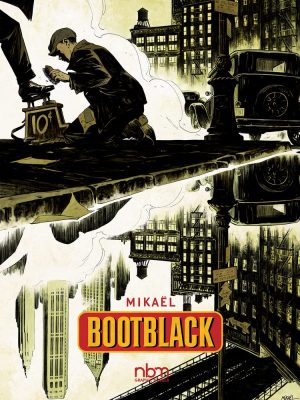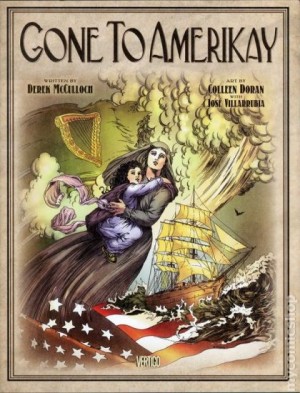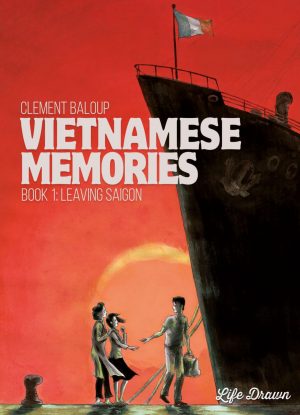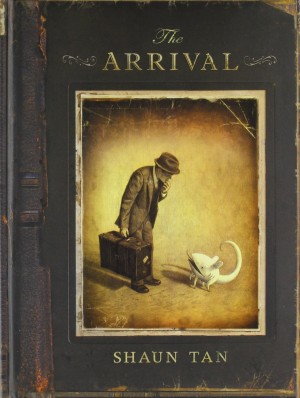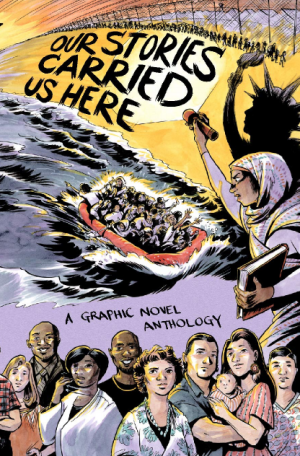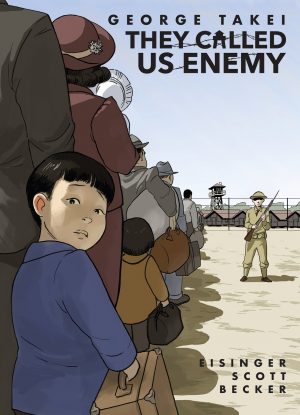Review by Ian Keogh
There’s a famous photograph of men who constructed skyscrapers in New York during the 1920s, having a break sitting on a steel girder dangling hundreds of feet above the city. Mikaël takes this as the inspiration for his cover, the Giant of the title duplicating the pose, but viewed from a different angle. While the picture is familiar, the daily working life of those men won’t be, and it’s powerfully evoked over the opening pages, showing even at ground level conditions are far from safe. Giant is completely antisocial, taciturn to gold medal standards, not even bothering to talk with people he works with every day. However, we learn there’s more to Giant than a stonily silent slab of beef when a fellow worker dies and Giant is tasked with returning his belongings to his wife along with a letter explaining what happened. Ryan Murphy was a dissolute scoundrel, yet the letters he received reveal a poor tormented wife wondering what’s happened to him and pouring out tales of woe regarding her own circumstances in Ireland.
It’s unspoken that the life and troubles the largely Irish workers left their country to escape are wretched, yet by any modern standards their new working life in unsafe conditions is equally appalling. The difference is that at least there is some work. Mikaël builds a picture of bonding through adversity with nationality the glue, his visual reinforcement of the working dangers constant, and that’s before the other dangers emerge, the weak beginning to prey on the even weaker. For a story so dependent on architecture, there’s an amazing amount of movement to Mikaël’s cast. He very rarely draws them as ordinary when still either, always choosing an interesting pose, and varying those poses. The streets the people occupy are thoughtfully designed, constricted and bustling, and when Mikaël pulls the viewpoint out to a distance the views are breathtaking.
Giant combines what was released in France as two albums, the first establishing the conditions and the set-up, while the conclusion supplies the consequences. As we begin to realise these, there’s a horrible dawning of how an act of kindness prompts a fantasy, and the devastation that awaits. It’s neatly constructed, Mikaël even acknowledging the Charlie Chaplin film that inspired the plot device. The prominent use of Chaplin may just be acknowledgement, but the sentimentality of his silent film character sits ill alongside the lack of sentiment and melancholy world of Giant. Life’s hard, and then you die comes across as the prevailing maxim, so it’s understandable that any straw is grasped for momentary comfort.
As the suspense builds and tragedy is anticipated, we learn who Giant is, and that he has a lot on his conscience. The drama flows very naturally, with Giant’s still waters running deep, but too many of the remaining cast are only present for one purpose, and not as well fleshed out, although they’re visually distinctive. In the end, that doesn’t overly matter because the story depends on just two people, and everyone else is there to service that. It’s tough, it’s depressingly honest about 1920s immigrant life, and you’ll want to read Giant again sometime in the future.
